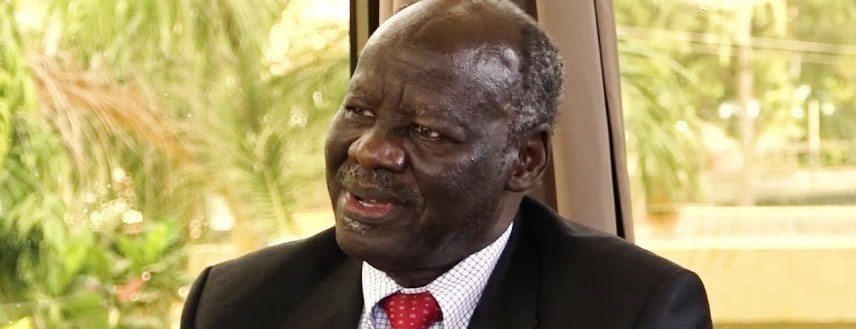The leader of the National Democratic Movement (NDM), Lam Akol, in a missive yesterday said President Salva Kiir has no power to appoint states’ governments.
Lam said that of the numerous powers of the President under Article 10, none is the appointment of state governments.
“First, is it within the powers of the President of the Republic to appoint sub-national Governments? Second, regardless of who has the power to appoint State-level Governments, what is the justification for denying one State its right to get its government like the rest of the states? In my humble opinion, the President of the Republic has no power to appoint the States’ Governments. Of the numerous powers of the President under Article 101(they are 20) none is the appointment of State Governments,” Lam wrote.
Article 164 (2) of the Transitional Constitution 2011, is clear that it is the governor that appoints and relieves members of his government. Article (2) stipulates that “The Governor of each state shall be the head of the executive organ in the state and shall appoint and relieve the Deputy Governor, Advisors and state Ministers in consultation with the President and accordance with the state constitution.”
Lam argued that the resolution by the meeting of the presidency that the president appoints the State and Local Governments of the nine (9) States, except that of Upper Nile State amounted to the usurpation of powers of state governors.
“For sure, the decision of the Presidency is a usurpation of powers of the States’ Governors granted them by the Constitution. It becomes more puzzling when it is the Presidency which heads the national executive charged with implementing the mandate of the Revitalized Transitional Government of National Unity (RTGoNU) that goes contrary to that mandate,” Lam wrote. “Article 1.2.15 of R-ARCSS stipulates that one of the functions of RTGoNU is to “devolve more powers and resources to the State and Local Government levels”. Far from implementing this article, the Presidency is busy concentrating more powers into the hands of the President.”
Lam said that it is common knowledge that parties to the agreement have been engaged for the last couple of months in negotiations on the formation of states’ governments and that they reached agreements on that. “However, the responsibility of the parties stops there. What should have happened was for the parties to write a joint letter to the governors of the states informing them of the agreements that have been reached for those governors to issue decrees appointing their governments per the Transitional Constitution and the Constitution of each State, and supervise their taking of the oath of office.”
Lam said about exempting Upper Nile State from getting its government, “this action has no justification apart from the failure of the two principals to R-ARCSS to agree on the appointment of the governor of the state.”
The NDM leader also quashed the second resolution of the presidency that the president proceeds to establish the Revitalized Transitional National Legislative Assembly and the Council of States.
“Again, the R-ARCSS is clear on how the Revitalized TNLA is to be formed. The procedure to carry that out is spelled out under Article 1.18 of R-ARCSS which defines the functions of the National Constitutional Amendment Committee (NCAC). Sub-Article 1.18.1.4 gives the NCAC the power: “to receive a list of the nominees of respective parties indicated in Chapter 1, Article 1.13 of the Agreement relating to the appointment of members of the reconstituted TNLA. The list shall be submitted to the President who shall forward it to the TNLA.” That is, the Parties to the Agreement (ITGoNU, SPLM/A-IO, SSOA, OPP, and SPLMFDs) shall submit the list of their nominees to the Revitalized TNLA (per Article 1.14) to the NCAC,” Lam highlighted.
“Therefore, the President has no business to proceed “to establish the TNLA”. The parties should be urged to submit their lists to the NCAC from whom the President will receive one unified list of the 550 members of the Revitalized TNLA. As to the Council of States, the agreement is silent on the procedure of its formation. Hence, the Presidency can decide how to do it,” Lam castigated.
A press statement by the ministry of presidential affairs dated 9th indicated that the presidency after a meeting had agreed that President Kiir shall appoint state and local governments of the nine states except for Upper Nile State.
The presidency also agreed that the president will establish the Revitalized Transitional Legislative Assembly and the Council of state.
They also agreed to hold a conference in Juba for the people of Upper Nile State to discuss and resolve any tribal or communal differences before a governor is appointed.
The meeting was attended by President Kiir, First Vice President Riek Machar, Vice Presidents: Rebecca Nyandeng, Dr. Wani Igga, Taban Deng, and Abdelbaggi Ayii. Presidential Advisor for Security, Tut Gatluak, and the Minister of Cabinet Affairs and acting Minister for Presidential Affairs Dr. Martin Elia, were also in attendance.




